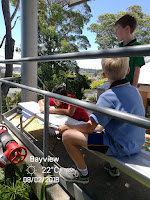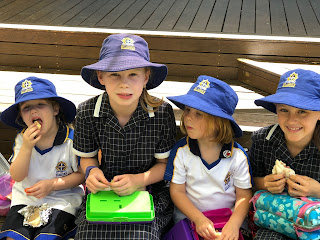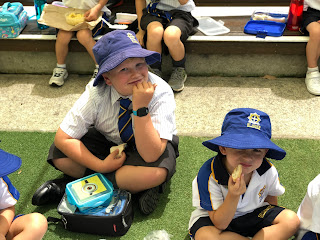It Here! The NSW Premiers Reading Challenge (PRC) starts on Monday 5 March and to launch the reading initiative the school is holding a Book Fair.
The Scholastic Book Fair will be open in the Learning Hub Tuesday - Thursday 6-8th March from 8.00-830 and 2.30-3.00.
Your children will be enrolled on the PRC website and your child will be able to log in and start recording books read from 6 March.
K-2 students – you can read the books on your own, read them with someone, or someone can read them to you. If your child is reading simple chapter books they can attempt the 3-4 challenge – please let Mrs Duffy know if this is your child.
3-6 students – you must read the books on your own, but someone can help you choose them.
Book lists are found here: https://online.det.nsw.edu.au/prc/booklist/home.html
Complete rules are found here: https://online.det.nsw.edu.au/prc/rules.html
Logging-on is easy from the 6 March at: https://online.det.nsw.edu.au/prc/home.html
Students will receive a Certificate for each year they complete the Challenge:
The online Student Reading Record must be completed by 31 August 2018 (11.59) to complete the Challenge.
If your child meets the challenge target, their certificate will have their name and school printed on it and the Honour Roll has names listed by alphabetical order but does not mention your school name.
If you do not want your child to receive a certificate or be on the Honour Roll, you must not enter any books in your online Student Reading Record.
By entering this challenge, your child is declaring that they have read the books entered in accordance with their school year rules.
I look forward to encouraging your children to take up the challenge and
share new books with them.












































